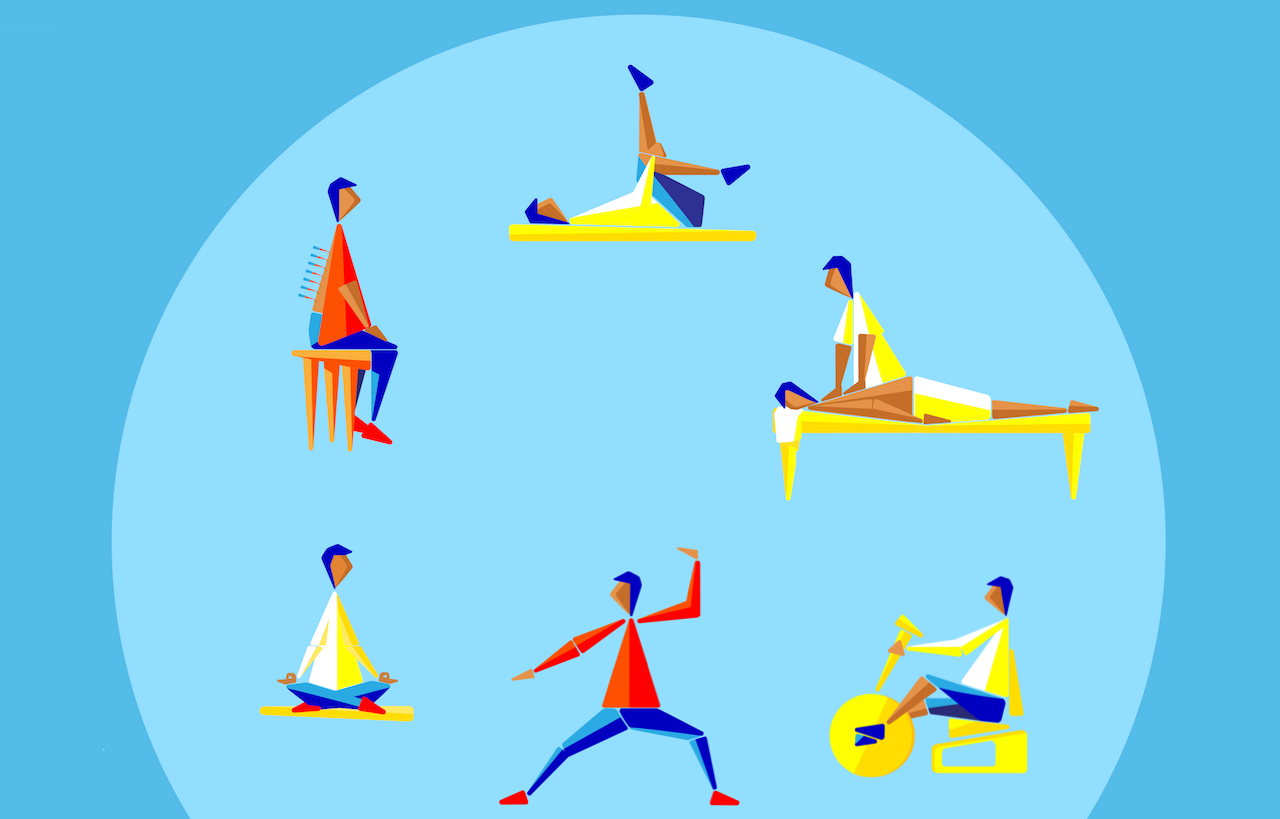Chronic pain is a common problem. Chronic means when pain lasts for more than several months (usually between three to six months).
Over-the counter-medication isn’t the only way to relieve pain. Take a look at alternative therapies.
Therapies & treatments
Acupuncture is an ancient Chinese medicine that’s rapidly becoming a mainstream treatment for pain. It’s believed to release pain-numbing chemicals in the body and block pain signals coming from the nerves. This works for pain caused by conditions like fibromyalgia, osteoarthritis, back injuries, and sports injuries. Acupuncture can treat lower back pain, menstrual cramps, headaches, joint conditions, and the side-effects of chemotherapy and nausea related to pregnancy.
Regular exercise has loads of benefits for people with different painful conditions. Physical activity can help relieve chronic pain, as well as boost energy and mood. Exercising can improve muscle strength and boost endurance. It helps with circulation and gets oxygen and nutrients to your tissues. This will help improve the function of your cardiovascular system. If you have chronic pain, check with your doctor before you start an exercise routine.
Depression and chronic pain often go together. Chronic pain can cause or worsen depression. The condition can lower a person’s tolerance for pain. Give therapy a try to help you talk out and solve problematic behaviours, beliefs and feelings.
The goal with deep breathing exercises and progressive muscle relaxation is to produce the body’s natural relaxation response, which is slower breathing, lower blood pressure and a sense of a good and balanced well-being.
Yoga has been practised for centuries and is said to reduce stress and improve fitness. It can also teach you that your breath is the bridge that links your mind and body. Inhaling and exhaling can help you achieve a deep sense of relaxation, flexibility and strength.
Supplements
Symptoms of bone pain and muscle weakness can be a result of Vitamin D deficiency. Get Vitamin D supplements, while adding plenty of Vitamin D-fortified foods like orange juice, salmon, and tuna to your diet.
Eating Vitamin C-rich foods is a good idea for your general health. Great options include red peppers, strawberries, citrus fruits, and broccoli. Vitamin C is known to reduce inflammation and act as a natural antibiotic and antihistamine (a type of medicine often used to treat allergies).
Supplements of Vitamin B have been shown to be effective in pain management for different conditions. You can get Vitamin B12 from your diet through eggs, milk, fish, meat, and some fortified cereals.
Vitamin E may be able to reduce exercise-related damage to muscles. Boost your Vitamin E intake through foods, and use safflower or sunflower oil when cooking. Snack on sunflower seeds and nuts like almonds, hazelnuts, and peanuts. Talk to your doctor before using any supplement as they’re not a substitute for medication.
References
- https://www.webmd.com/pain-management/features/alternative-treatments#1
- https://www.practicalpainmanagement.com/common-alternative-treatments-chronic-pain
- https://nccih.nih.gov/health/stress/relaxation.htm
- https://www.everydayhealth.com/pain-management/the-top-pain-fighting-vitamins.aspx
- https://www.webmd.com/diet/guide/vitamin-d-deficiency#2
- https://positivepsychologyprogram.com/progressive-muscle-relaxation-pmr/

